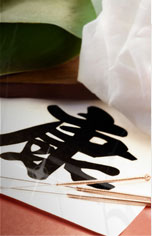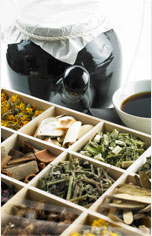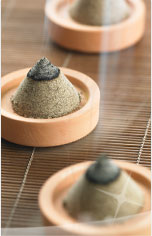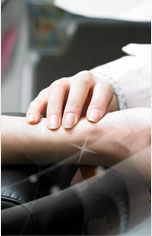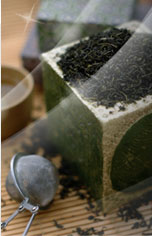|
Depression is a mood disorder that causes a persistent feeling of sadness and loss of interest. Depression affects how you feel, think and behave, and can lead to a variety of emotional and physical problems. You may have trouble doing normal day-to-day activities, such as work, school, social activities or relationships with others, and sometimes you may feel as if life isn’t worth living.
Common symptoms of depression include:

- Feelings of sadness, tearfulness, emptiness or hopelessness
- Angry outbursts, irritability or frustration / anxiety, agitation or restlessness
- Loss of interest or pleasure in most or all normal activities
- Sleep disturbances, tiredness and lack of energy
- Reduced appetite and weight loss or increased cravings for food and weight gain
- Trouble thinking, concentrating, making decisions and remembering things
- Recurrent thoughts of death, suicidal thoughts, suicide attempts or suicide
- Unexplained physical problems, such as back pain or headaches
Research suggests that a combination of genetic, biological, environmental, and psychological factors plays a role in depression. Depression can occur along with other serious illnesses, such as diabetes, cancer, heart disease, and Parkinson’s disease. Depression can make these conditions worse and vice versa. While depression is most commonly treated with medication, therapy, or a combination of the two, increasingly, complementary and alternative treatments are being used and called up by persons with depression.
Depression in TCM
In Traditional Chinese Medicine (TCM), human emotions are closely related to the internal organs. The organ predominantly associated with depression is the Liver, whose primary function is to store the Blood and maintain the smooth flow of Qi (the vital energy of the body) throughout the body. Emotional upsets such as anger, anxiety, or grief can directly affect the Liver, causing stagnation of Liver Qi - which is often the underlying problem in depression as well as in stress and anxiety. Prolonged stagnation of Liver Qi impairs the circulation of Qi and Blood throughout the body, leading to dysfunction of other Zang Fu organs, causing various mental and physical symptoms.
NOTE: The names of organs are capitalized when referring to the entire, functional organ systems in TCM perspective: Liver, Blood, etc. The names of organs are lower-cased when referring to the distinct, biomedical organs: liver, blood, etc.
TCM Treatment for Depression
Because mind and body are intimately connected, TCM treatment focuses on calming the mind and relieving depression while restoring the balance of internal organ systems at the same time.
TCM treatments for depression are unique for each patient, as every person has a unique constitution and imbalances. As a patient's symptoms and issues change, the treatment will be adjusted accordingly. Healing time depends on the severity of symptoms and general health of the patient. Some patients report relief after just one session of acupuncture, while others may take up to several weeks to months to notice improvement. A typical acupuncture treatment schedule might begin with 1-2 sessions a week, tapering as the patient’s symptoms improve.
Acupuncture
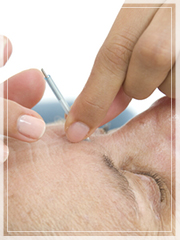
Acupuncture consists of stimulating specific points on the body by inserting fine, sterile needles. Acupuncture benefits both physical and mental/emotional functioning by promoting the smooth flow of Qi and restoring the balance of internal organs.
Scientific studies and controlled clinical trials have been conducted to measure and explain the effects of acupuncture. The results of these studies have shown that acupuncture stimulates the neurotransmitters involved in emotional regulation, such as serotonin and endorphin, increases blood circulation, regulates reproductive hormones, alters pain receptor-pathways, and reduces inflammatory responses.
A clinical study conducted in China in 2010, has concluded that acupuncture is a ‘safe and effective’ treatment for mood disorders including depression and severe anxiety. Acupuncture can also increase the effectiveness of medication-based treatments.1
According to a meta-analysis published in 2010, the efficacy of acupuncture was comparable to antidepressants alone in improving clinical response and alleviating symptom severity of major depressive disorder. The incidence of side adverse reactions in acupuncture treatment was significantly lower than that of antidepressants.2
Although acupuncture could be used as a standalone treatment, it’s considered more effective when used in combination with antidepressants and other clinical treatments. In fact, some research suggests that acupuncture may even help clinical treatments work better and may be as effective as counseling when used as a part of a complementary care plan.3
|
Chinese Herbal Medicine
In addition to acupuncture, Chinese herbal formulas are often prescribed to strengthen the mind, to resolve the blockage of Qi, and to restore the balance of internal organs.
Chinese herbs are usually used in a combination of 2 to 30 herbs and are customarily prescribed for each patient. Herbs can be administered to a patient in many forms. Raw herbs can be taken as a brewed tea form. This herb tea form is strong and quick acting; however, it takes time for cooking and preparation and the taste can be quite strong. The herbs can also be consumed in many other forms such as powder, capsule, pill, topical and tincture. Herbs possess many strengthening and therapeutic effects because of their content of various nutrients and vitamins, which are essential to the body. While Chinese herbal medicine can be very potent, it may take a few weeks to months before the full effects are noticed.
|
|
Tips for Coping with Depression
- Develop a support network
- Improve your diet
- Get regular exercise
- Improve your sleep
- Practice relaxation techniques
- Learn how to stop negative thoughts
|

